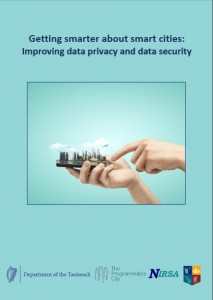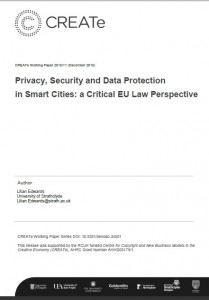We are organising a special issues on data-driven cities. You can find more details below and we look forward to your proposals.
Tecnoscienza. Italian Journal of Science and Technology Studies
SPECIAL ISSUE
“DATA DRIVEN CITIES? DIGITAL URBANISM AND ITS PROXIES”
Guest editors:
Claudio Coletta (Maynooth University)
Liam Heaphy (Maynooth University)
Sung-Yueh Perng (Maynooth University)
Laurie Waller (Technische Universität München)
Call for papers:
In the last few decades, data and software have become an integral part of urban life, producing a radical transformation of social relations in cities. Contemporary urban environments are characterised by dense arrangements of data, algorithms, mobile devices, and networked infrastructures. Multiple technologies (such as smart metering, sensing networks, GPS transponders, CCTV, induction loops, and mobile apps) are connected with numerous processes (such as institutional data management, data brokering, crowdsourcing, and workflow management), in order to provide sustainable, efficient, and integrated city governance and services. Accordingly, big data and algorithms have started to play a prominent role in informing decision-making and in performing the spatial, material, and temporal dimensions of cities.
Smart city initiatives undertaken globally are characterised by highlighting the purported benefits of partly automating management of public services, new forms of civic engagement enabled by digital infrastructures, and the potentials for innovating policy and fostering economic development.
Yet, contributions within STS, Critical Data Studies, Geography, Sociology, Media Studies and Anthropology have contested the neutral and apolitical nature of (big) data and the ahistorical, aspatial, homogenizing vision of cities in favour of an understanding that recognizes the situated multiplicity of actual digital urbanism. The politics of data, data analytics and visualizations perform within specific urban and code assemblages embodying specific versions of real-time and anticipatory governance. At the same time, these studies highlight the risks of dataveillance as well as the corporatisation of governance and technocratic solutionism which, especially coupled with austerity regimes, seem to reinforce inequalities while influencing people’s lives out of the public grasp. Within this context, vested interests interact in a multi-billion global market where corporations, companies and start-ups propose data-driven urban solutions, while public administrations increasingly delegate control over citizens’ data. Also, public institutions and private companies leverage the efforts of open data movements, engaged civic communities and citizen-minded initiatives to find new ways to create public and economic value from urban data.
The aim of this special issue is therefore to encourage critical and transdisciplinary debates on the epistemological and ontological implications of actual data-driven urbanism: its uncertain, fragile, contested, conflicting nature; the different forms of performing and making sense of the urban environment through data and algorithms; the different ways to approach the relationship between data, software and cities; the urban and code assemblages that are produced.
To what extent cities are understandable through data? How do software and space work in urban everyday life and urban management? How do data and policies actually shape each other? What forms of delegation, enrolment and appropriation take place?
We welcome theoretical and empirical contributions critically addressing the following (non-exhaustive-list-of) topics:
– urban big data, city dashboards;
– data analytics and data brokering;
– IoT based urban services;
– predictive analytics and anticipatory governance;
– civic hacking, open data movements;
– privacy, security and surveillance in data-driven cities;
– crowd, mobility and traffic management;
– sensors, monitoring, mapping and modelling for urban facilities;
– digitization of built environment.
Deadline for abstract submissions: June 30th, 2016
Abstracts (in English) with a maximum length of 1000 words should be sent as email attachments to redazione@tecnoscienza.net and carbon copied to the guest editor at datadrivencities@tecnoscienza.
Deadline for full submissions: October 15th, 2016.
Submissions (in English with a maximum length of 8000 words, including notes and references) can be made via the Journal’s submission system at www.tecnoscienza.net and an electronic copy of the article should be sent to redazione@tecnoscienza.net. The papers will be subject to a blind peer refereed review process. The special issue is expected to be published in 2017.
For further information about the special issue, contact the guest editors at datadrivencities@tecnoscienza.
For further information about the Journal please visit the Journal’s web site at http://www.tecnoscienza.net.
Claudio, Liam, Sung-Yueh and Laurie



